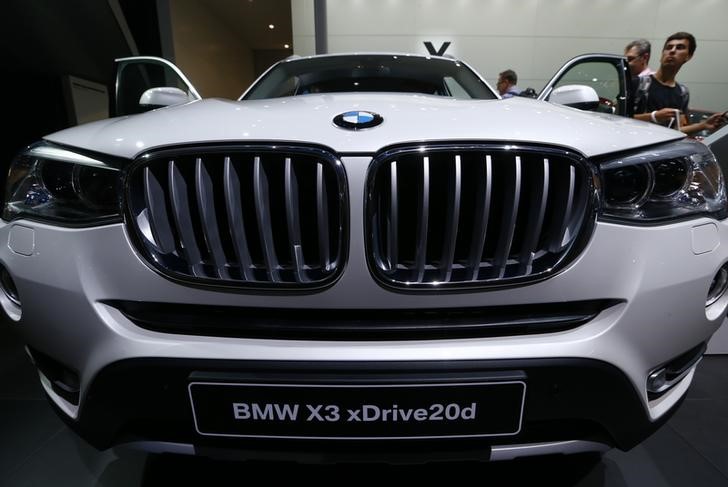Joby Aviation closes $591 million stock offering with full underwriter option
Investing.com -- BMW Group shares fell 7% on Wednesday after the company lowered its financial outlook for 2025, citing weaker-than-expected growth in China, reduced bank commissions in the Chinese market, and slower-than-anticipated tariff reductions.
The German automaker said volume growth year-to-date through September was positive in Europe and the Americas, but growth in China remained below expectations.
As a result, BMW Group reduced its volume expectations for the Chinese market in the fourth quarter.
The company also pointed to a significant reduction in commissions from local Chinese banks in connection with brokering financial and insurance products to end customers, which will require financial support to strengthen dealer profitability.
BMW said some assumptions made at the time of its half-year reporting regarding tariff reductions have not yet been fully realized.
The company continues to expect that the European Union will implement the agreement with the United States to reduce tariffs on vehicles and auto parts from 10% to 0% effective Aug. 1, but the changes have not yet been fully realised.
Accounting for these factors, BMW said the auto EBIT margin for 2025 will remain in the previously guided corridor of 5% to 7%, specifically in the range of 5% to 6%. Return on capital employed in the Automotive segment is now expected to be between 8% and 10%, down from the earlier forecast of 9% to 13%.
The company said group earnings before tax are now expected to decline slightly, compared with an earlier forecast of being at the same level as the previous year.
BMW also said reimbursements of customs duties from American and German authorities, totaling a high three-digit million figure, will not be received in 2025 as previously expected, but will instead be paid in 2026.
These adjustments will also affect free cash flow. BMW now expects free cash flow in the Automotive segment for 2025 to be above €2.5 billion, compared with the earlier outlook of above €5 billion, a reduction UBS Global Research described as a “cut by half,” driven by “China weakness and timing of tariff refund.”
UBS noted that China volumes are now expected to be down by more than 10% year-on-year, compared with a previous guide of no worse than a decline of 5%, while pricing in China is also weaker.
The brokerage said these China-related factors, including an expected a negative €0.5 billion impact from dealer payments in the second half, “don’t have one‑off character” and will weigh on BMW beyond 2025.
UBS added that the delay in tariff refunds, now expected in 2026, will affect free cash flow in the high three-digit million euro range, and that the 2025 tariff impact on EBIT margin is about 25 basis points higher than previously expected.
The brokerage forecast that consensus for auto EBIT in 2026 could fall by 10% to 15% on a reduced China outlook, resulting in an auto EBIT margin of 5% to 5.5% on a lower revenue base.
“We think positioning in BMW was such that this surprise warning will trigger a substantial negative share price reaction near-term,” UBS said.
The brokerage also highlighted that while BMW retains a favourable capital allocation policy and its share buyback programme, the downgrade is likely to lead to a lower EPS for 2025 and a reduced dividend per share. UBS projected EPS of about €11 for 2025 and a dividend of around €4.
BMW said the dividend payout ratio will remain in the corridor of 30% to 40% of net income attributable to BMW AG shareholders.
